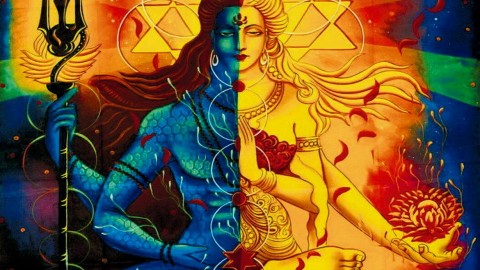Present Moment – In Gita Verse 2.19 Neither he who thinks the living entity the slayer nor he who thinks it slain is in knowledge, for the self slays not nor is slain.
Krishna, through the wisdom of the Gita Verse 2.19, illuminates the profound truth that one who is truly knowledgeable transcends time. Such a person dwells entirely in the present moment and acts without the shadow of animosity. The essence of this wisdom is captured elegantly in two words: “Present Moment.” Those who are lost in the echoes of the past or the whispers of the future are caught in the mind’s labyrinth, knowledgeable perhaps, but lacking in wisdom. They follow the words like shadows, forgetting to let the light of their own intelligence guide them.
The present knows neither past nor future; it is a singular point of existence, untethered from the timeline. Yet the mind often strays from this point, lured by memories or ensnared by the anticipation of what is yet to come. It is only when one steps fully into the present that they can transcend, employing the logical mind as a tool – useful but subservient.
Arjuna, representatively, is ensnared by the logical mind, its compelling arguments holding him captive and drawing him away from the present, where his true responsibility lies. Knowledge can be a clever escape from this responsibility, distracting us with the past’s nostalgia or the future’s fantasy.
To dissolve the ancient afflictions of human misery, the journey starts within. We must embrace our inner state moment by moment, taking responsibility for our being. Life’s complexity is an illusion spun by the mind; existence flows simply in the present.
The present is not really a slice of time but rather the stage of existence itself. While we chronologically segment it as past, present, and future for our practical convenience, the stark reality is that the past and future are mere constructs – only the present is eternal, the very canvas of existence. Kabir, the mystic poet, urges the seeker to realise this truth, stating that the Divine is found in the immediacy of now: “Khoji hoye turat mil jaau, ek pal ki talash mein.”
True seeking is instantaneous, in the living breath of the moment, not in distant plans or future quests. Kabir invites us to awaken in the moment, fully and completely.
To capture the essence of the present, we must relinquish the future’s plans and goals. The divine bliss and even enlightenment are not destinations but realisations in the here and now. Once we accept this, we understand that dwelling in the past or anticipating the future only detracts from the richness of the present. Our memories overburden us, and our dreams ensnare us, all while we barely notice the evanescence of the present moment. We must journey within, beyond the mind’s distractions, to live in our authentic subjectivity.
Arjuna’s concern with the future stems from a disconnection from the present. Should he awaken to the now, he would immediately recognise his divine duty. His current state is clouded by the unconscious play of knowledge.
Krishna wisely speaks to this knowledge, indicating the profound realisation that comes from knowing oneself. This is a subtle point of transformation – where ego is bruised, pain is felt, and from that alchemical process, we learn to distance ourselves from our afflictions.
As I have contemplated in my teachings and writings, including the exploration of Bhagavad Gita Verse 2.17, it is in the moments of hurt and misery that we find the opportunity to step back and become observers, to separate ourselves from our suffering and find the path toward true enlightenment.
Tags: Present Moment





